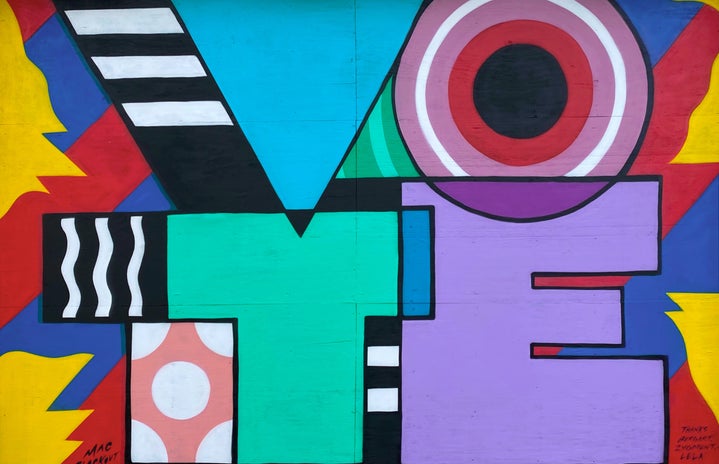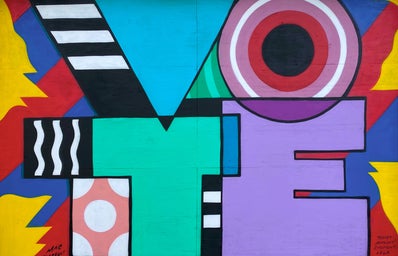The 2020 presidential election has already been declared as one of the most important in U.S. history- and November 3 is still not upon us. A record number of 73,332,715 early ballots have been recorded, along with many other historic firsts. Senator Kamala Harris, who is the vice presidential nominee for the Democratic Party, made history as the first Black and South Asian woman to ever be on a major party ticket. President Donald Trump is the first president to run for re-election after being impeached; and, no matter who is elected, the next president will be the oldest in U.S. history. As a result, the unprecedented nature of this election, especially amidst the coronavirus pandemic, has led to immense mobilization and constituent engagement throughout the country. 73 million people watched the first presidential debate this election year and although these debates have previously not swayed a vast majority of undecided voters, they are still influential for some and can help voters better understand the issues at stake, as well as allow them to judge the temperaments of each candidate. As the election draws closer, it is important to recap some of the most significant moments of the debates.
1. First Debate
The first debate took place on Tuesday, September 29 and was moderated by Chris Wallace, a Fox News anchor. Many cited that this debate was one of the worst presidential debates in history as Trump and Biden constantly interrupted one another, invoking more personal attacks than addressing policy issues. One of the first segments involved the nomination of Amy Coney Barrett (she was confirmed by the Senate on October 26 and swiftly took the judicial oath on October 27). Here, Biden addressed that the monumental case, Roe v. Wade, was on the ballot this election as Justice Barrett has been questioned numerous times regarding her stance on abortion rights. Trump responded that “It’s not on the ballot” and that “There’s nothing happening there. And you don’t know her view on Roe v. Wade. You don’t know her view.” The tense exchanges regarding Barrett’s nomination are contextualized by the fact that President Obama’s Supreme Court nomination of Merrick Garland in 2016 was blocked during the last general election year by Senate Republicans. Most notably, however, Justice Barrett is now Trump’s third Supreme Court appointee throughout his four-year presidency and this results in a 6-3 conservative majority of the Court.
Another pressing issue throughout the debate was how Trump and his administration have responded to COVID-19. Biden heavily criticized Trump’s failure to implement a national testing strategy and mentioned how Trump himself stated that he downplayed the severity of pandemic. Trump also remarked on how Biden “could be speaking 200 feet away from him and he shows up with the biggest mask I’ve [Trump] ever seen.” Shortly after the first debate, Trump tested positive for coronavirus and subsequently refused to participate in a virtual debate. Each candidate hosted town halls instead. In one of the later segments, Wallace directly asked Trump to condemn white supremacists and militia groups. Trump failed to do so and instead, pushed back by blaming violence on the “left wing” and antifa. His full response was: “Proud Boys, stand back and stand by. But I’ll tell you what: somebody’s got to do something about antifa and the left. Because this is not a right wing problem this is a left wing problem.” The Proud Boys are an identified hate group by the Southern Poverty Law Center and spew racist, Islamophobic, and misogynistic propaganda. The lack of condemnation was one of the most unsettling moments of the night and reflected a pattern of the President. The 90 minute debate included many other tense moments, especially when Biden voiced his frustration stating that “it’s hard to get a word in with this clown.”
Related Article: Trump X Biden: A Debate That Made History (But Not In A Good Way)
2. Second Debate
The second debate took place on October 22 and was moderated by Kristen Welker of NBC. The beginning tone of the second debate was vastly different from that of the first with the level of interruptions subdued and an overall decreased level of hostility. Trump reiterated that the number of COVID-19 deaths would be far higher if he had not taken the steps that he had and Biden again criticized Trump’s national response. This created a segway where Biden outlined “Bidencare” which would introduce a public option to the Affordable Care Act. However, one of the more personal moments of the debate was where Trump again claimed that Biden’s son, Hunter, was involved with business dealings between Ukraine and China and that Biden personally received financial benefits as a result of these exchanges.
The broader understanding of the situation was detailed in an article by the New York Post where they reported that an email from Vadym Pozharskyi, an advisor of the Ukrainian energy company Burisma, thanked Hunter Biden for introducing him to his father. Hunter was a director on the board of Burisma during Obama’s presidency; however, there is no evidence that a formal meeting took place and during the debate, Biden continuously denied this claim. Welker also introduced questioning that allowed each candidate to talk directly to Black Americans as systemic racism plagues this country. Within this segment, Trump made the claim that he was “the least racist person in this room” and “with the exception of Abraham Lincoln… nobody has done what I’ve done [for Black Americans].” Biden rebutted by sarcastically and bluntly stating that “Abraham Lincoln here is one of the most racist presidents we’ve had in modern history.” Climate change was one of the last topics discussed that night as Trump heavily focused on the idea that jobs in the oil and fossil fuel industry would be eliminated if more environmentally-conscious measures were implemented. Biden acknowledged that global warming is a growing threat to the planet, however; both candidates oddly defended the position that they would not ban fracking. This debate was acknowledged to be much less chaotic than the first and muted microphones were one of the more notable influencers of this outcome.
Related Article: 3 Highlights from the Final Trump vs. Biden Debate
These debates, as well as the vice presidential debate, proved to reflect and acknowledge the pressing issues that are paramount in this year’s election. The tense and personal exchanges also embodied elements of the political polarization that is mounting throughout all aspects of life. As in every election but even more relevant now, it is instrumental that constituents vote and advocate for just and equitable reforms.



